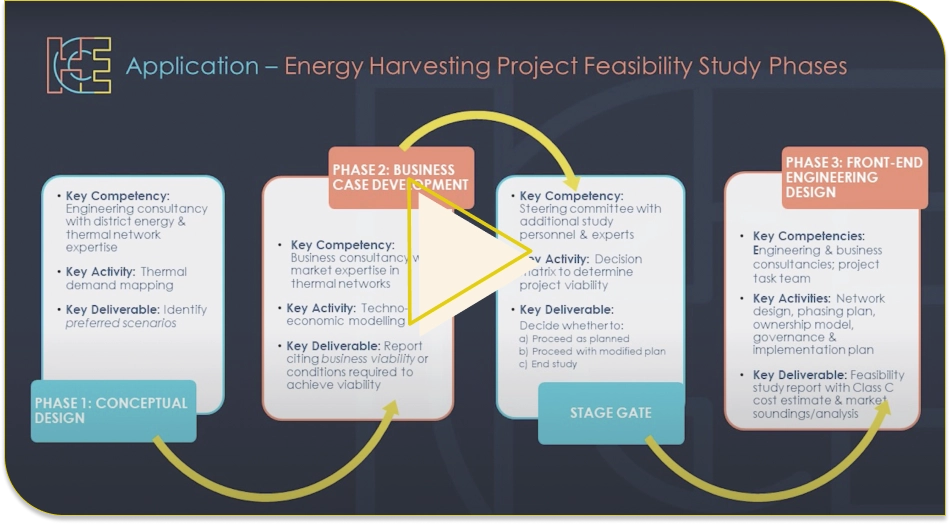
News & Resources
Energy Harvesting Project

Low-carbon solutions for heating and cooling
HCE is committed to helping communities recover and reuse valuable thermal energy. Common energy sources ideal for heating and cooling buildings include factories, cooling towers, data centres, sports arenas, water treatment facilities, and power plants.
Currently, upwards of 60% of the energy used from these
and other sources is routinely expelled to our atmosphere and waterways.
This needs to be addressed as part of the global pursuit
of net-zero.
Energy Harvesting Initiatives
Heat recovery is a proven strategy to conserve energy,
lower operating costs, and reduce GHG emissions. It is also an effective way to stimulate job training, construction, and employment in the circular economy.
That’s why HCE is leading the way with our Energy Harvesting Project and related initiatives.
Energy Harvesting Feasibility Study
A guiding principle for this Study is the end goal of developing a scalable model for low-carbon building heating that can be replicated in other jurisdictions. A fundamental success factor will be involving investors, manufacturers, policymakers, carbon reduction specialists, and other subject matter experts in our journey.






